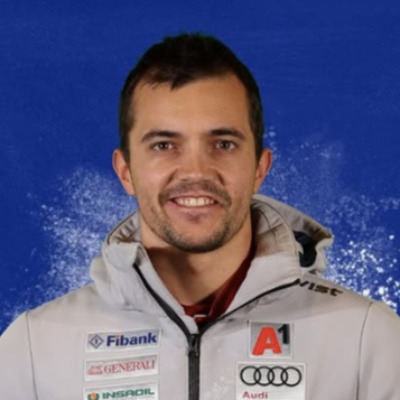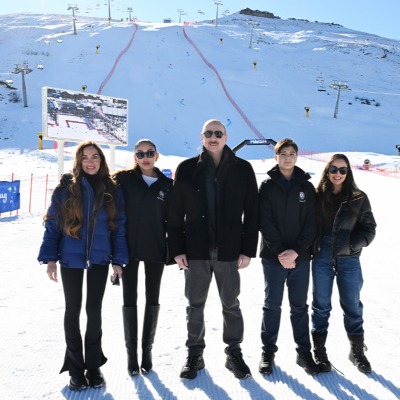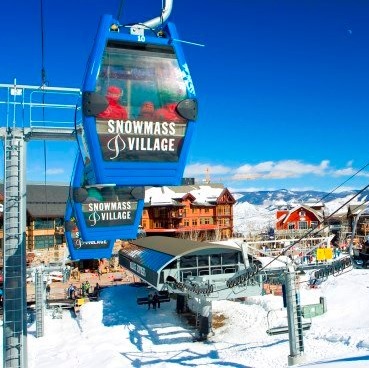FIS Q&A With USA's Ryan Cochran-Siegle

The 2017/18 season was a successful one for American Ryan Cochran-Siegle as he competed injury-free and took a positive step forward in his competitive career. After he achieved a top-30 ranking in alpine combined and approached the top 30 in giant slalom as well, we asked the legacy skier some questions about the season behind him and the one that lies ahead. FIS chatted with him;
How satisfied are you with your season?
I am very happy with how my skiing came together to close out my season. That being said, I know I am still a world away from where the top skiers are at the moment, so the satisfaction comes with a grain of salt for me. In the words of the late, great Robert Frost, “The woods are lovely, dark and deep. But I have promises to keep, and miles to go before I sleep.”
What do you still need in order to crack the top 30 in giant slalom?
The biggest thing right now is consistency. I started finding that top race gear more frequently toward the end of my season, but I know there were still many runs earlier on where for whatever reason my skiing just wasn’t quite clicking the same as it would in training. A lot of that will come as I work on developing adaptability and gain more and more experience on the World Cup. I do need to do my best to stay focused on it as we head into our summer preparations.
You compete in all disciplines from giant slalom to downhill, which comes with a very intense race and training schedule. Have you ever considered specializing in a single discipline?
Never! It’s way more fun to get a variety than to pick just one. That way life can never be boring. As long as I don’t get spread too thin, then I want to continue doing what I’m doing for as long as possible.
Do you see any disadvantages to being an all-arounder?
The biggest disadvantage is finding time off to rest and recover, especially when it comes to my limitations physically with my knee and everything. My coach Forest [Carey] and I do a really good job before the start of the year finding strategic breaks in my schedule to prevent burnout. Sometimes that means not racing a World Cup here or there, but I see it as a way to stay fresh and maintain a higher level of performance throughout the year. The biggest advantage is that you get to take whatever you discover or feel in one event and cross it over and blend it in with all the others, making you an more well-rounded skier overall.
Which is your favorite discipline?
Whichever one I’m skiing the best in. I enjoy skiing the most when the turns that I make feel good. If I am skiing better in one event, then those turns will feel better too. When all of my events are in sync, my favorite would have to be GS because of the pleasant rhythm and athleticism involved.
Your 2017/18 season ended on positive notes with an equaled career-best result on the World Cup (10th in Kranjska Gora) and two further U.S. Championship titles (in combined and super-G). What will it take to build on those results next season?
The biggest thing will be to preserve the confidence and feeling that I had on my skis once summer training starts up again and closes in on the start of next race season. Obviously, that also means continuing to focus on whatever it is that I need to improve the most, whether it is equipment, technique, tactics, or some other factor. I feel good about where I am at right now, but also really want to continue moving forward and up!
Do you have any specific goals for 2018/19?
Like every other year my Plan A is to try my hardest to win every race. Besides that I want to continue skiing my best, stay healthy, and have as much fun as possible. Well, probably not "Bode-off-the-hill" fun, but as close to it as I can. Maybe the only real goal I have for next year is to compete in the World Ski Championships in Åre.
What would you like to achieve in your career as an athlete?
At the end of the day, if I can look back and feel that I took advantage as best I could of all the opportunities that were given to me, I will be a happy camper. I would also like to be seen as a good person and role model to my community and for younger generations to look up to.
At the 2013 World Championships in Schladming, you suffered a severe knee injury that required a transplant surgery and several years of rehab. What gave you the confidence that the surgery would be successful and your knee would be strong enough to return to professional ski racing?
It’s a really easy decision to make when you have no other option. Sometimes in life all you can do is put your trust in other people’s hands and hope for the best. This was one of those cases where I had to put my entire faith in Dr. Robert F. LaPrade and my rehab team. When I first met with Dr. LaPrade, my knee was in really tough shape. I will never forget the time he told me after looking over the MRI that I had a 60/40 chance to ever compete at an elite level of athletics again. That was a scary moment, but there was nothing else for me to do other than try to get it fixed as best as possible if I wanted to continue skiing, which I did. I was fortunate that it ended up working out.
What was your motivation to come back to the highest level?
I was only 20 years old with a very promising career trajectory still ahead of me when I first injured my knee. My motivation came from me not being ready to give up on my career goals as well as my belief that I still had a lot left in the tank so long as my body was willing. I also received a tremendous amount of support from my team, coaches, family, and friends during the lowest of low points that helped me keep pushing through. Plus, I figured it would make for a pretty good story if I could overcome it and still accomplish all my dreams.
Looking back, what did you learn from this rehab period?
That all the hard work has paid off tenfold. I am the happiest I have ever been in my life and have the perspective to know how privileged I am to be able to do what I do. It’s easy to say all of this now from a distance relative to what it was like when I was actually in it, but that entire progression was a huge learning experience and I am a better person because of it. Trust the process!
Between your family’s ski area, the Slopeside Syrup business, and your studies in physics and mechanical engineering, you appear quite busy off snow as well. What can you tell us about these activities?
I’m probably not quite as busy as you might think. Being over at the ski area is my favorite activity of the three, but I’m still not there as much as I’d like because of my busy schedule for skiing. Hopefully in the future, I’ll be able to be more involved with operations and planning. It is such a special and rewarding place to be not only for my family and me but also for the entire community who goes there to ski and ride. The same goes for Slopeside Syrup, except that I helped out a lot more the first few summers when everything was really getting going. Whether it was running 5/16-inch lines up on the hill, pulling taps in the spring, or zigzagging one-inch rolls of tubing through the woods. More recently I have spent the majority of my summers in Park City, Utah, to do physical training with the rest of my team. So I and haven’t had as much opportunity to go up in the woods or work in the sugarhouse with my cousins. In terms of my education at Westminster College, I have been working toward a degree in physics with hopes of getting into the field of mechanical engineering later on down the road. Unfortunately, most of the required classes specific to my major are only offered during the fall and spring semesters when I’m too busy on the road skiing. I do what I can at the moment by fitting in an elective class or two during the summer, but I will likely still have close to two years of school left by the time I stop skiing. Ski racing is far and away my main priority right now!
How important is it for you to have interests other than ski racing?
It is very important. For one thing, it makes you into a more well-rounded person to have later in life and can also help give your mind a break from the stresses of ski racing when necessary. It’s probably a good thing we didn’t delve deeper into my New England sports fandom interests, but I also do a good job staying busy by keeping track of all my favorite sports teams – the Boston Red Sox, Boston Celtics, and New England Patriots – throughout the year. That and ski racing are my religion. Even just traveling with a set of books to read while on the road helps me keep perspective and stay relaxed.
Where do you see yourself after you have won all your Olympic medals?
Regardless of if I win Olympic medals or not, the first thing I plan to do after my ski career is go back to school and complete a bachelor's degree in physics or, if possible, engineering. Then say I do win medals, you’d definitely find me splitting my time 50/50 between running the T-bar at the ski area and putting in taps in the sugarbush for Slopeside! I’d also like to get a dog. I love dogs!













